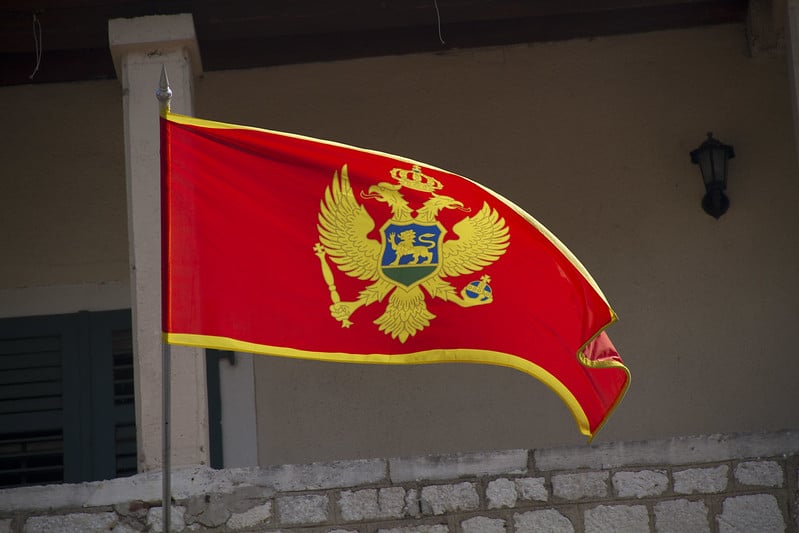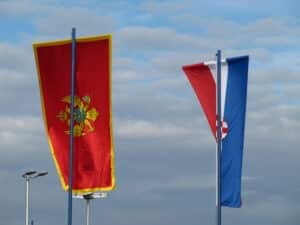The last parliamentary elections in Montenegro were characterized by a wide offer on the political spectrum, from civic parties to Serbian nationalists, an absolute commitment to the democratic process despite the COVID-19 pandemic. Each of the participating coalitions applied the rules of good election marketing, in which the coalitions URA and “For the Future of Montenegro’’, ZBCG, gathered around DF (a hardline Serbian Nationalistic party). They made use of new faces as their leaders, which mitigated negative reactions to traditional leaders like Mandic or Knezevic. The turnout was of the elections was around 76% of the voters, far above the regional average, showing that citizens believe they can influence politics and perceive the political process.
At the same time, according to the announcement of the results, the holders of the two main lists, Djukanovic and Krivokapic, made rather moderate statements, which indicates a currently different political culture in relation to, for example, Serbia where pejorative qualifications are dominant and often pure insults of opposing politicians. Neither Djukanovic qualified Krivokapic as a traitor, nor did he qualify him as a thief, and even Djukanović said that he would accept the results of the elections.
The long-standing rule
The Democratic Party of Socialist (DPS) of Djukanović, has been in power for 30 years Furthermore, it has to be acknowledged that during these 30 years DPS was almost always in a coalition with parties of ethnic minorities. This seems like a sort of guarantee of the integration of Montenegro in wider regional security and economic organizations, such as NATO or the EU.
Losers and winners
When the euphoria about the “fall of the regime” unfolds, the results show that the biggest loser in this elections is the coalition “Peace is our nation”, MN, which dropped from the previous election result of 21.1%, as Becic and Lekic, their respective leaders, had together, to 12, 5%, or about 8.5% less of the total number of voters, in other words over they lost over 40% of their voters lost.
The second loser is of course the DPS, although it remains by far the strongest party, that has lost about 6.3% of the vote. They had 41.1% in the last parliamentary elections and declined to 35%, losing about 15% of its voters.
The biggest winner is the coalition URA, which form an unknown political option, with the leader who was a member of the defeated ”Positive” with 1.32% in the previous parliamentary elections. The URA won 5.57% of the vote in this election and quadrupled its result.
The previous party is followed by ZBCG, a coalition of five parties and independent intellectuals, with a difference of 12.2% compared to DF in 2016. ZBCG also increased the number of its voters by 50%.
The Social Democratic option, the opposition SDP, and the ruling SD experienced a slight drop of 1% and lost about 15% of their electorate. Despite the result, SD improved its result and the SDP loosed 2% of the total number of voters. Nevertheless, the biggest losers of these elections are the parties of the Croatian national minority. They were left without any representatives due to 532 votes.
Change of the political field
ZBCG managed to take over a large part of voters in the coalition “Peace is our nation’’. The ZBCG spread an abstract message of peace and chose to support the Serbian Orthodox. They pledged to protect the holy sites. In that respect, the electoral result of ZBCG can be interpreted as a sort of emancipation of the collective (Serbian nation). That is an alienation from the respect for the individual and human rights and freedoms based on it. The mobilization of the “people”, the politicized ethnicity, by Serbian nationalists, based on the “defense of holly sites” voted ZBCG instead of “Peace is Ours Nation” as its favorite.
Influence
In that respect, even the existential envy, between the rich, more or less perceived as members or sympathizers of the ruling coalition and other citizens, had less influence on the attitudes of voters. Besides the problems of corruption and organized crime. This claim is supported by the fact that 4% of newly oriented voters opted for a non-nationalist political message, and the nationalist message attracted more than 12% of newly oriented voters out of the total number of voters.
The mobilization of the Serbian electorate, which led to the crystallization of a kind of “Serbian list” in Montenegro, has the ambition to become a dominant political factor. However, it is still not bearing in mind the diversity of the political spectrum, and the fact that the DPS is still the strongest party.
The main test for the opposition announcing the formation of the new government, ZBCG-URA-MN, will be the relationship with NATO. For most ZBCG voters, this military alliance is a personification of Satan and injustice inflicted on the Serbian people, and any allied relationship with the countries around Montenegro, Croatia and Albania, or with the USA nor Great Britain is not acceptable to them. Whether the new Minister of Defense, provided that a government is formed without the participation of the DPS, will be cooperative or not, will depend on the attitude of NATO and the European Union towards the new Montenegrin government. It will be seen on this issue whether Montenegro has become a constituency of Serbia within a wider association including Republika Srpska, or has retained its political autonomy.
The Media
When analysed the media market of Montenegro it has to be taken into account that the Bosnian (in particular Republika Srpska) and Montenegrin society are fully part of the same media space as Serbia, because it is the same linguistic area. The Serbian media, both paper and tv, are distributed freely in Montenegro and are equal to local media in terms of audience. Therefore, only the state television station of RTCG is under the control of the Government, all other media are not.
Only the local newspapers Pobjeda and Dnevne Novine could be considered as pro-government, while Vijesti and Dan (Montenegro based) and Kurir, Informer, Blic, Alo, Politika, Večernje Novosti, Politika Ekspres, Danas (Serbia based) are to be considered as pro-ZBCG oriented, and only Danas to the civic opposition such as URA. However, the Serbian based newspapers have the same readership as the Montenegro based newspapers. This is a consequence of the fact that the area of Montenegro, BIH and Serbia are to be considered as a culturally single area, with the same language. Adjacent Croatia and Macedonia are to a lesser degree subject to “Serbian soft-power”, due to more pronounced religious and linguistic differences which then reflect also on the political attitudes of the voters and their “immunity” in such sense to the influences from Serbia.
Influences of Serbia
Besides, one could even have noticed certain enthusiasm in the region for influencing these Montenegrin elections. The engagement of well-known hardline promoters of Serbian nationalism, such as poet Bećković or pop singer Georgije in favor of ZBCG, was omnipresent. A real psychological war was waged on social media by their followers through threats, curses and stigmatization of DPS voters, in line with the recent church ex-communication of DPS members of parliament.
Support
It could also be noticed the almost absolute support of the Serbian opposition parties, in addition to ruling parties, was directed in support of the Montenegrin opposition, primarily to ZBCG, and sporadically to civic options, such as SDP or URA.
However, the other possible option cannot be ignored, and that is that the majority of opposition politicians in Serbia simply sincerely support the so-called. “Fight for the holly sites”, the thesis about the primacy of the welfare of the collective, the nation, in respect to the welfare of the individual, and its rights and freedoms, human rights. The Serbian opposition simply fails to go beyond the framework imposed by nationalists, as Mosse pointed out referring to the national socialist dominant narrative in Germany during the 20s of the XX century. Therefore, they have no or a very low degree of empathy for either Croats or Montenegrins, perceiving them as essentially “others” by definition hostile to Serbs, camouflaging this attitude with excuses such as the “Ustasha” regime in Croatia or “mafia regime” in Montenegro.
In such a context, ZBCG becomes a kind of temporary Montenegrin “Serbian List”, with the ambition that finally Serbs from Montenegro, who undoubtedly cultivate a sense of superiority in relation to Serbs from Serbia, will take their honorable place in “Serbianness”. Bearing in mind that the electoral success of Krivokapić, the leader of ZBCG is the electoral success of Risto Radović and bishop Amfilohije. the ambitions of the Serbian orthodox bishops based in Montenegro will certainly increase within the ranks of the SPC and will keep on influencing the political spectrum and society.
Author: V. Sekulovic
Photo: Flickr



